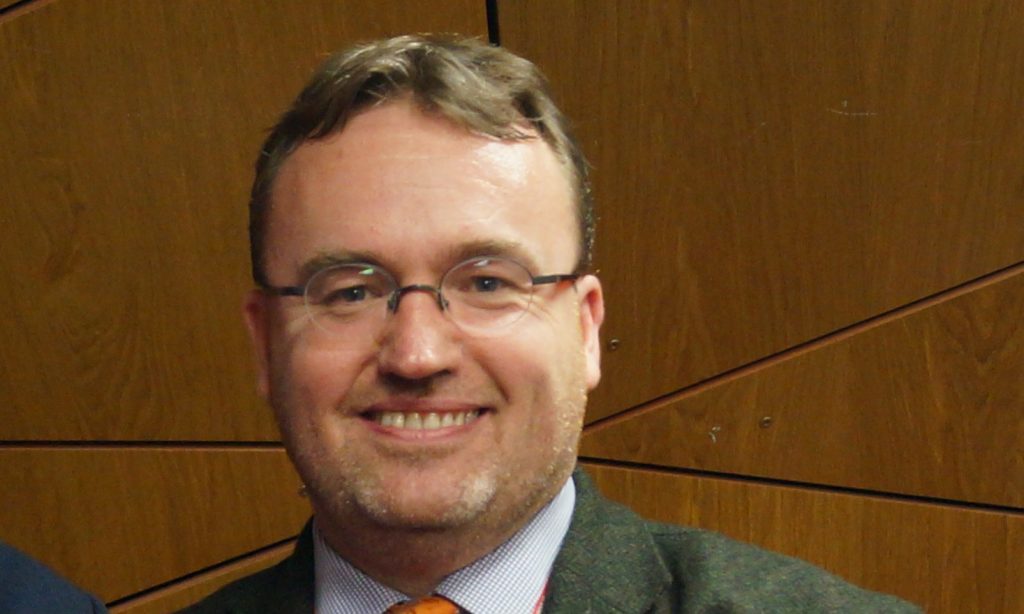Tumour-targeted drugs for kids with diffuse midline glioma (previously called DIPG)
Fast facts
- Official title: Biological Medicine for Diffuse Intrinsic Pontine Glioma (DIPG) Eradication (BIOMEDE)
- Lead researcher: Dr Darren Hargrave
- Where: Great Ormond Street Hospital for Children
- When: February 2016 – January 2022
- Cost: £110,278. Co-funded with Cancer Research UK
- Research type: Paediatric, DMG/DIPG (High Grade), Clinical Trial
What is it?
We’re funding the UK participation of BIOMEDE, an international, adaptive clinical trial for children with Diffuse Midline Gliomas – pontine location (DMG, formerly known as DIPG).
The trial is the first of its kind because it requires the children to have a biopsy of the tumour, and based on the molecular traits of the tumour different treatments are assigned.
In the first instance of the trial, the molecular traits that are tested for are PTEN and EGFR, and the first drugs that will be tested are dasatanib, everolimus and erlotinib. The levels of PTEN and EGFR detected in the tumour biopsy will define which drug, or drugs, the child receives as part of their treatment.
The adaptive nature of this trial means that as new treatments become available for this kind of tumour, they can be added into the trial. This is key so that children get access to the new, potentially life-saving treatments faster.
Why is it important?
There are three main reasons why this trial is so important.
- Biopsies are now being done on DMGs
Before this trial, children with a DMG would not have the option of surgery due to the very risky location of the tumour. New surgical techniques have been developed and, because of BIOMEDE, are now being taught among the neurosurgical community.
The new availability of tumour samples means that researchers have access to more information on what’s happening in these tumours than ever before, and can investigate new ways to kill the tumours.
Importantly, this new information on the tumours, at an individual level, means that treatments can now be more targeted to the child’s tumour. - There are treatments available based on the tumour’s molecular characteristics
Until now, children with DMG have had even fewer treatment options than people with most other types of brain tumour. The location of the tumour, near the brain stem, coupled with the lack of knowledge about the tumours themselves meant radiation was the only option. The knowledge from BIOMEDE already means that children have access to drug therapies, and we’re looking forward to the next cohort of drugs added to the trial. - There’s a fast way for emerging treatments to be brought to the clinic, and to children
The adaptive design of this trial means that new treatments can be added into the trial when they become available. This means that the set up process, which can take years, is already done and that the systems to treat the children are already in place.
Who will it help?
This trial will help children with a diffuse midline glioma, now and in the future.
Milestones
- Achieved
- The trial is being led by Dr Darren Hargrave at Great Ormond Street Hospital, but is also open to recruitment in 14 other centres across the UK.
- In August 2018 there were already 28 UK children enrolled onto this trial and receiving more tailored treatment.
- Anticipated
- The trial will keep recruiting and treating children until they reach the international milestone of 150 participants.
Research is just one other way your regular gift can make a difference
Research is the only way we will discover kinder, more effective treatments and, ultimately, stamp out brain tumours – for good! However, brain tumours are complex and research in to them takes a great deal of time and money.
Across the UK, over 100,000 families are facing the overwhelming diagnosis of a brain tumour and it is only through the generosity of people like you can we continue to help them.
But, by setting up a regular gift – as little as £2 per month – you can ensure that families no longer face this destructive disease.
We are very proud to be funding clinical trials like this one, but we aren’t responsible for getting people onto them.
Different trials have different eligibility criteria, if you would like to explore this option please contact your medical team.
If you would like help with this conversation, or would like more general information please contact our support team.
In this section
